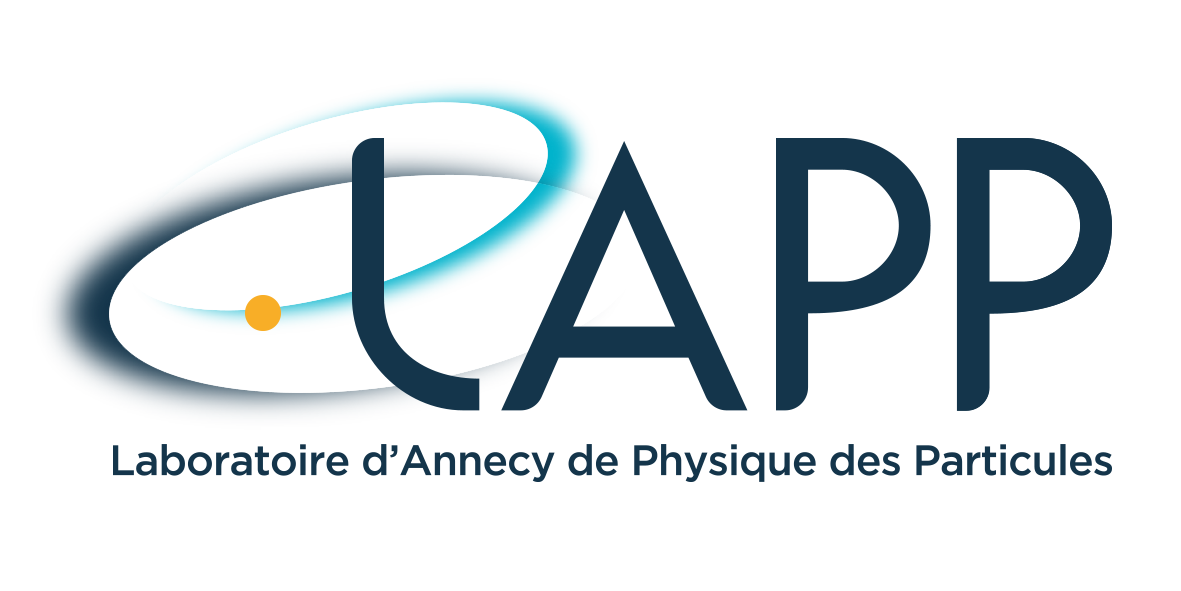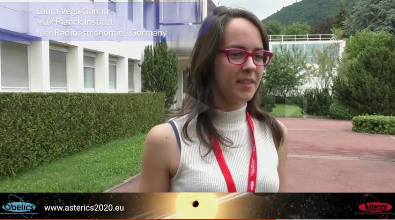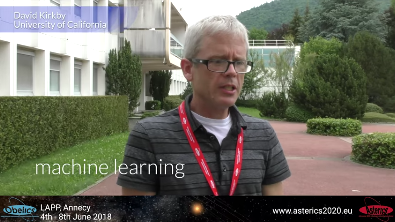3rd ASTERICS-OBELICS International School
School Programme: the program of the school is devoted to project development for astrophysics & astroparticle physics. The aim of the school is to provide theoretical and hands-on training on Python development: python libraries, machine learning, C/C++ in Python. Please find more information here.
Courses: the courses are available on Github as well as on Indico.
Course duration : 8 April 2019 till 12 April 2019 (everyday from 9h00 till 18h00).
Communication: a Slack community for the school is available for communication between participants, to ask questions to tutors, to get out, etc.
School venue : CNRS-LAPP, Annecy, France.
Accommodation Arrangements: shared accommodation arrangements (with breakfast) have been made for the school participants at the Centre Jean 23 Guest House. Please find more information here.
Previous editions of the school : 1st, 2nd.
Testimony from students and tutors from second edition:
Who is organizing this school: LAPP is the organizing this school in association with OBELICS partners, PRACE. This international school is being organized in the framework of OBELICS (Observatory E-environments LINked by common ChallengeS) work package of H2020-ASTERICS project.
 What is H2020-ASTERICS: the Astronomy ESFRI and Research Infrastructure Cluster, ASTERICS, is a Research Infrastructure funded by the European Commission's Horizon 2020 framework. ASTERICS aims to address the cross-cutting synergies and common challenges shared by world class Astronomy ESFRI Facilities such as SKA, CTA, KM3NeT, LSST, LOFAR, EUCLID, EGO & ELT.
What is H2020-ASTERICS: the Astronomy ESFRI and Research Infrastructure Cluster, ASTERICS, is a Research Infrastructure funded by the European Commission's Horizon 2020 framework. ASTERICS aims to address the cross-cutting synergies and common challenges shared by world class Astronomy ESFRI Facilities such as SKA, CTA, KM3NeT, LSST, LOFAR, EUCLID, EGO & ELT.
For more information visit https://www.asterics2020.eu/
What is OBELICS: OBELICS stands for OBservatory E-environments LInked with common ChallengeS. OBELICS is one of the workpackages of H2020-ASTERICS. It aims at enabling interoperability and software re-use for the data generation, integration and analysis of the cluster of ESFRI and pathfinder facilities in Astronomy and Astroparticle Physics.
OBELICS Partner Institutes :
- Laboratoire d'Annecy de physique des particules, France
- Netherlands Institute for Radio Astronomy, Netherlands
- The National Institute for Astrophysics, Italy
- The National Institute for Nuclear Physics, Italy
- University of Cambridge, UK
- The Joint Institute for VLBI ERIC, Netherlands
- The Institute of High Energy Physics, Spain
- The French Alternative Energies and Atomic Energy Commission (CEA), France
- The Complutense University of Madrid, Spain
- Friedrich-Alexander University Erlangen-Nürnberg, Germany
- The Center for particle physics of Marseilles, France
- The Laboratoire interdisciplinaire Astroparticule Cosmologie, France
- The Institut d'astrophysique de Paris, France
For more information visit: https://www.asterics2020.eu/obelics
 About LAPP : Created in 1976, the LAPP is one of the 19 laboratories of the National Institute of Nuclear and Particle Physics (IN2P3). LAPP has about 150 researchers, professor, researchers, engineers, technicians, administrators, students and foreign visitors. The research carried out at the LAPP aims to study the physics of elementary particles and their fundamental interactions, as well as the exploration of the connections between the infinitely small and the infinitely large. LAPP is involved in LHC experiments with CERN (ATLAS, LHCb), neutrinos (STEREO,SuperNemo, Dune), astrophysics (HESS, CTA, AMS,LSST), Future colliders (ILC, CLIC) and gravitational waves (Virgo).
About LAPP : Created in 1976, the LAPP is one of the 19 laboratories of the National Institute of Nuclear and Particle Physics (IN2P3). LAPP has about 150 researchers, professor, researchers, engineers, technicians, administrators, students and foreign visitors. The research carried out at the LAPP aims to study the physics of elementary particles and their fundamental interactions, as well as the exploration of the connections between the infinitely small and the infinitely large. LAPP is involved in LHC experiments with CERN (ATLAS, LHCb), neutrinos (STEREO,SuperNemo, Dune), astrophysics (HESS, CTA, AMS,LSST), Future colliders (ILC, CLIC) and gravitational waves (Virgo).
LAPP Website http://lapp.in2p3.fr/
LAPP Presentation video ( in English): https://youtu.be/Sk-xzDEiy7Q
LAPP Presentation video ( in French): https://youtu.be/uPSXV4rAYPw





